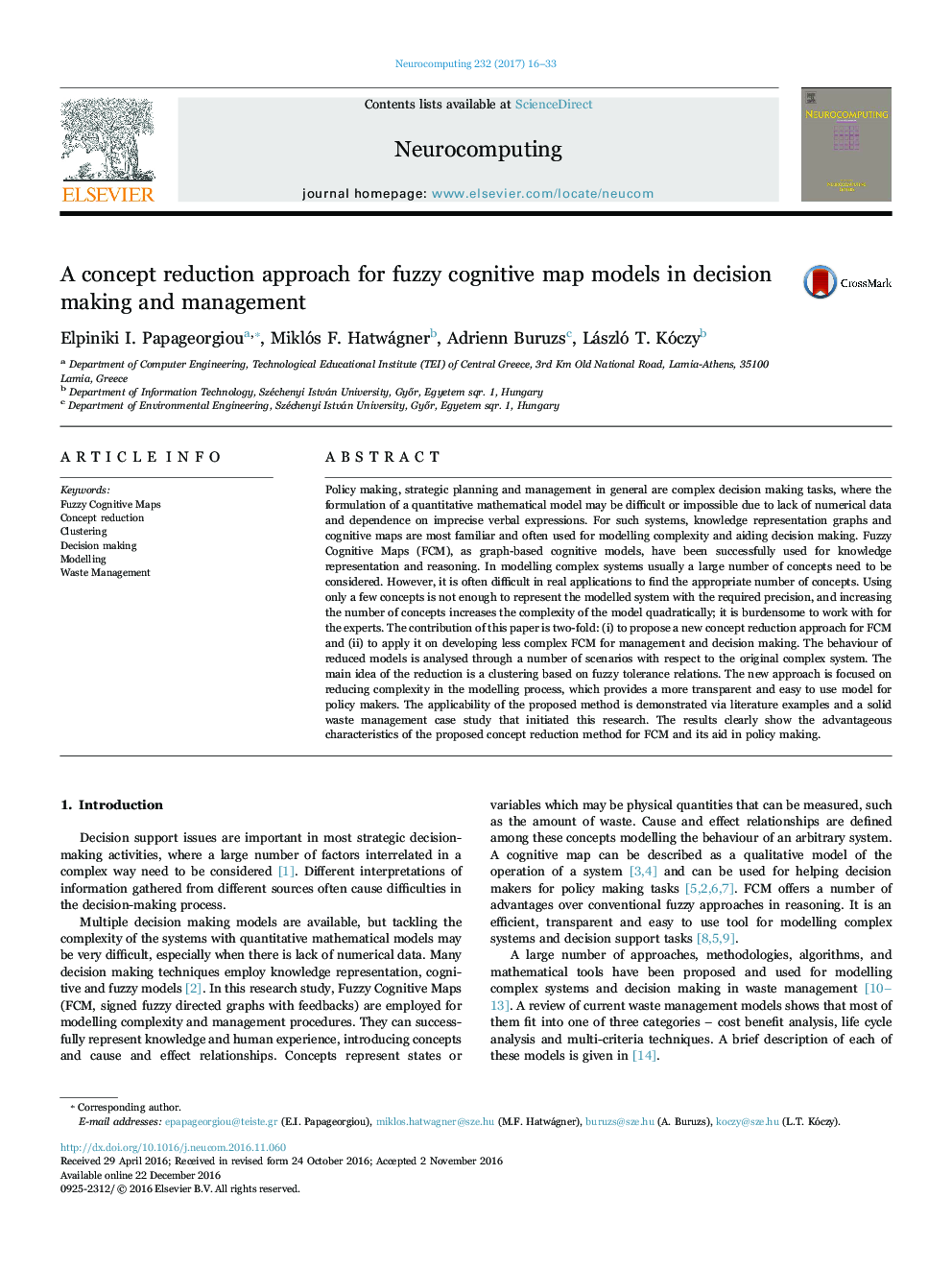| Article ID | Journal | Published Year | Pages | File Type |
|---|---|---|---|---|
| 4947871 | Neurocomputing | 2017 | 18 Pages |
Policy making, strategic planning and management in general are complex decision making tasks, where the formulation of a quantitative mathematical model may be difficult or impossible due to lack of numerical data and dependence on imprecise verbal expressions. For such systems, knowledge representation graphs and cognitive maps are most familiar and often used for modelling complexity and aiding decision making. Fuzzy Cognitive Maps (FCM), as graph-based cognitive models, have been successfully used for knowledge representation and reasoning. In modelling complex systems usually a large number of concepts need to be considered. However, it is often difficult in real applications to find the appropriate number of concepts. Using only a few concepts is not enough to represent the modelled system with the required precision, and increasing the number of concepts increases the complexity of the model quadratically; it is burdensome to work with for the experts. The contribution of this paper is two-fold: (i) to propose a new concept reduction approach for FCM and (ii) to apply it on developing less complex FCM for management and decision making. The behaviour of reduced models is analysed through a number of scenarios with respect to the original complex system. The main idea of the reduction is a clustering based on fuzzy tolerance relations. The new approach is focused on reducing complexity in the modelling process, which provides a more transparent and easy to use model for policy makers. The applicability of the proposed method is demonstrated via literature examples and a solid waste management case study that initiated this research. The results clearly show the advantageous characteristics of the proposed concept reduction method for FCM and its aid in policy making.
